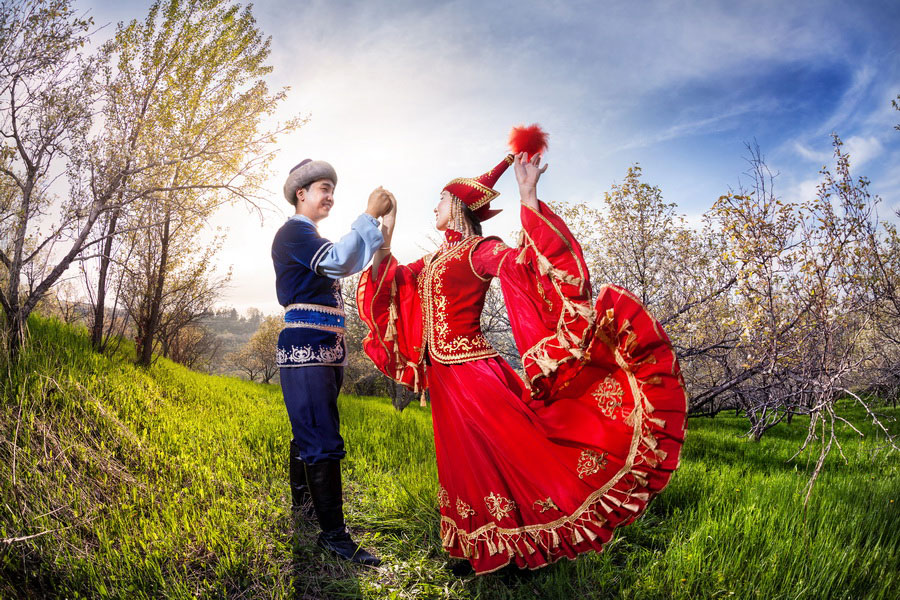Discover Kazakhstan Holidays: Facts, Knowledge, and Cultural Overview
Kazakhstan holidays are a blend of historical, cultural, and national events that reflect the country’s diverse heritage. These observances include state holidays, religious celebrations, and cultural traditions rooted in both Kazakh and broader Central Asian history.
Importance of Kazakhstan holidays today
Public holidays in Kazakhstan are more than just days off work. They serve significant cultural, educational, and social purposes.
-
National identity – Days such as Independence Day (December 16) and Constitution Day (August 30) reinforce pride in Kazakhstan’s sovereignty and political development.
-
Cultural preservation – Traditional festivals like Nauryz, celebrated on March 21–23, connect people with ancient customs, music, food, and folklore.
-
Religious values – Islamic holidays such as Eid al-Fitr and Eid al-Adha highlight Kazakhstan’s Muslim heritage, while promoting unity across communities.
-
Social cohesion – By celebrating together, citizens from different ethnic backgrounds strengthen mutual understanding and respect.
For citizens, these holidays bring time with family, community gatherings, and cultural education for younger generations. For policymakers, they are a way to keep traditions alive while ensuring inclusivity across a multiethnic population.
Recent updates and holiday trends in Kazakhstan
In the past few years, several updates have shaped the way holidays are observed in Kazakhstan.
-
Digital celebrations (2023–2024): Due to global trends and earlier pandemic restrictions, many cultural institutions began live-streaming concerts, lectures, and exhibitions related to national holidays.
-
Nauryz celebrations expanded (2023): In March 2023, the government emphasized a wider celebration of Nauryz over several days, encouraging eco-friendly events and traditional sporting competitions.
-
Public engagement initiatives (2024): Schools and universities were encouraged to integrate holiday-related activities, such as cultural fairs and essay competitions, to strengthen youth participation.
-
Modernized Independence Day events (2024): The December 2024 program included nationwide cultural performances and exhibitions on Kazakhstan’s achievements since independence.
These changes reflect a balance between tradition and modernity, ensuring holidays remain meaningful in contemporary society.
Laws and policies on Kazakhstan holidays
Holidays in Kazakhstan are formally established by the Law on Holidays in the Republic of Kazakhstan, adopted in 2001 and updated in subsequent years. This law divides holidays into national holidays, state holidays, and professional holidays.
-
National holidays are of special significance. The only one recognized officially is Independence Day on December 16.
-
State holidays include Constitution Day, Republic Day (October 25), and Victory Day (May 9), among others.
-
Religious holidays such as Eid al-Fitr and Eid al-Adha are recognized but their dates follow the Islamic lunar calendar.
-
Professional holidays celebrate specific fields, such as Miner’s Day or Teacher’s Day, though they are not official days off.
According to Kazakhstan’s labor code, public holidays are generally non-working days, but essential services such as healthcare and transportation continue operating. If employees work on a public holiday, they are compensated with higher pay or time off.
The government also regulates how schools, public institutions, and state media should promote holiday awareness, ensuring cultural education and national pride.
Tools and resources for learning about Kazakhstan holidays
For individuals interested in Kazakhstan’s holidays, several digital tools and resources are available to explore traditions and schedules.
-
Official Government Portal (gov.kz): Provides updated information on national holidays, observances, and government programs.
-
UNESCO Cultural Heritage Resources: Offers insights into traditions like Nauryz, recognized as part of the world’s intangible cultural heritage.
-
Holiday Calendar Apps (Timeanddate, Local.kz): Provide accurate holiday dates, including Islamic observances, adjusted to the lunar calendar.
-
Kazakh TV and Radio (qazaqstan.tv, kaztrk.kz): Broadcasts cultural programs, documentaries, and concerts related to national holidays.
-
Educational Platforms (e-history.kz): Offers resources on Kazakhstan’s historical background and the role of holidays in national identity.
These tools make it easier for students, researchers, and travelers to understand the cultural importance of Kazakhstan’s holiday calendar.
Frequently asked questions about Kazakhstan holidays
1.What is the most important holiday in Kazakhstan?
The most important holiday is Independence Day on December 16, marking the country’s sovereignty declared in 1991. It is the only officially recognized national holiday.
2.How is Nauryz celebrated in Kazakhstan?
Nauryz, celebrated around March 21–23, marks the spring equinox. Families prepare traditional dishes like nauryz kozhe, people visit relatives, and public events feature music, dance, and traditional sports.
3.Are Islamic holidays official holidays in Kazakhstan?
Yes, Eid al-Fitr and Eid al-Adha are officially recognized. Their dates shift each year based on the lunar Islamic calendar, and they are observed as public holidays across the country.
4.Do Soviet-era holidays still exist in Kazakhstan?
Some Soviet-era holidays, like Victory Day on May 9, remain part of Kazakhstan’s holiday calendar. They are observed with military parades, concerts, and public commemorations.
5.Does Kazakhstan recognize international holidays?
While global observances like New Year’s Eve are celebrated, they are often adapted with local traditions, combining both Kazakh and international customs.
Conclusion on Kazakhstan holidays
Kazakhstan holidays represent a dynamic intersection of history, culture, and modern identity. They reflect the nation’s diverse heritage, from pre-Islamic nomadic traditions to Islamic observances and post-independence national milestones.By observing holidays, Kazakhstan not only preserves traditions but also builds social cohesion among its diverse population. Recent updates show a trend toward modernization, wider community engagement, and eco-conscious events.For anyone studying Central Asian culture or global holiday calendars, Kazakhstan offers an example of how tradition and modernity coexist. Whether through official laws, cultural programs, or digital tools, the country’s holidays continue to shape both national pride and cultural awareness.